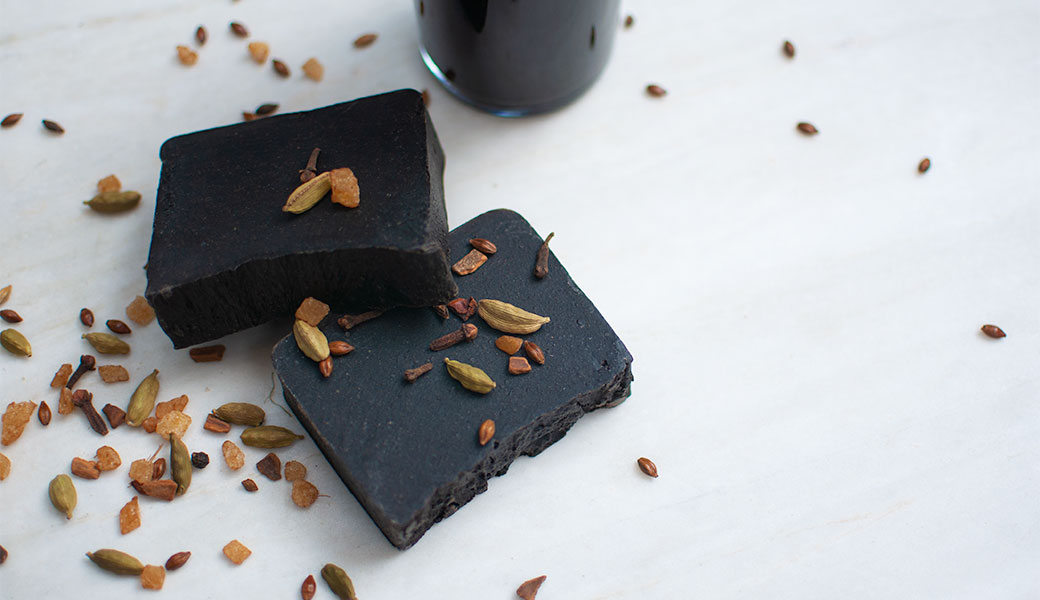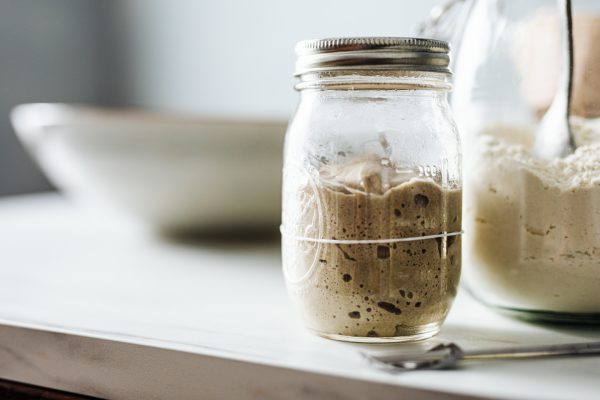
Originally published in the May/June 2013 issue of Zymurgy magazine.
Although beer soap is nothing new, the Chai Milk Stout soap idea came to me as I was emptying the mash tun after brewing a batch I have been making bar soap at home for a few months now and friends and family really like my creations. Apparently my soap holds up well, is long-lasting, and keeps the skin well moisturized. Until recently, all the soaps I’ve made have had no abrasive additives. But for my latest soap, instead of the usual recommendation of steel-cut oats, I decided to add spent grains.
Soap making isn’t difficult and the time commitment is less than brewing a batch of beer. The spent-grain soap didn’t turn out as perfectly as my other batches, but it has a pleasant spice aroma. I realize now that I didn’t dry the spent grain as thoroughly as I should have. Next time I’ll blot them dry with paper towels, or maybe hold them in the oven for 20 minutes.
If you want to give beer soap a try, below is a list of ingredients and instructions. Be creative and try other beer styles. Barrel aged framboise soap? Whole hop IPA soap? The possibilities are endless.
Chai Milk Stout Soap
Safety Warning: Like most basic soap recipes, this recipe uses lye, which is caustic and produces a hazardous gas. Please use safety gear and caution, and consult an online source such as www.soap-made-easy.com/safe-soap-making.html for basic safety tips!
Ingredients:
- 8 fl oz (236 ml) Chai Milk Stout* or other homebrew
- 2.82 oz (80 g) sodium hydroxide (100% lye, found in hardware stores or online)
- 10.5 fl oz (310 ml) canola oil
- 10.5 fl oz (310 ml) coconut oil
- 0.25 cup (60 g) spent grain, mostly dried (optional abrasive additive)
- *The Yak & Yeti Chai Milk Stout recipe from the January/February 2011 Zymurgy magazine is recommended
Directions:
- Pre-measure ingredients and lay them out on a clean workstation.
- Melt to coconut oil in a saucepan until clear; remove from heat.
- While wearing safety gear and preferably outside or in a well-ventilated area, add the lye to the beer in a heat-resistant container preferably with a handle (such as a Pyrex measuring cup). An exothermic reaction occurs and it off-gasses hazardously. Monitor with a thermometer until temperature is around 80°F (26.5°C). (Do not breathe fumes!)
- When coconut oil has cooled to 85-95°F (29.5-35°C), add canola oil, which will drop the temperature slightly.
- Miz oils and the beer/lye mixture in a blender and close the lid.
- Blend well. Stop periodically to watch for saponification (the chemical reaction that creates soap). You’ll know when you are done if you spoon some liquid and try to pour it back in the solution. If it quickly sinks, you are not done blending; if it makes drops and indentations that linger, you are done. (It should be approximately the consistency of ketchup). The mixture will start to get warm.
- Add the optional dried spent grain and blend uniformly; do not puree the husks too long.
- Pour mixture into a clean 1-quart milk carton and close the top.
- Wrap the carton in several hand towels to keep it insulated.
- Wait 24-48 hours; peel back the carton using rubber gloves.
- Place soap on a cutting board and cut into 8-10 bars. Set the bars vertically and slightly spaced so they can air dry.
- After 3-4 weeks, the soap will have cured, transforming the lye from caustic to neutralized and thus safe for the skin.
- Enjoy!
* * *
Adam Draeger is head brewer at The Yak & Yeti Brewpub in Arvada, Colo.


Share Post